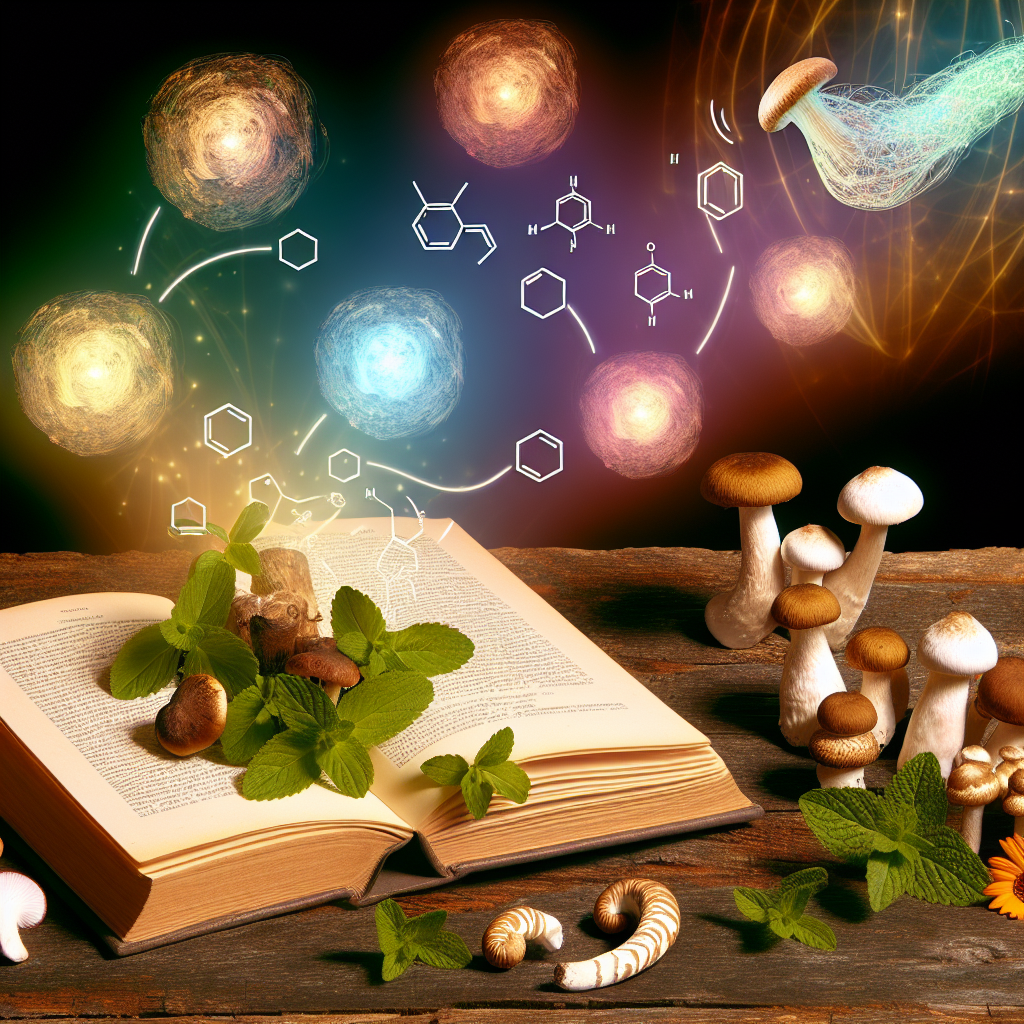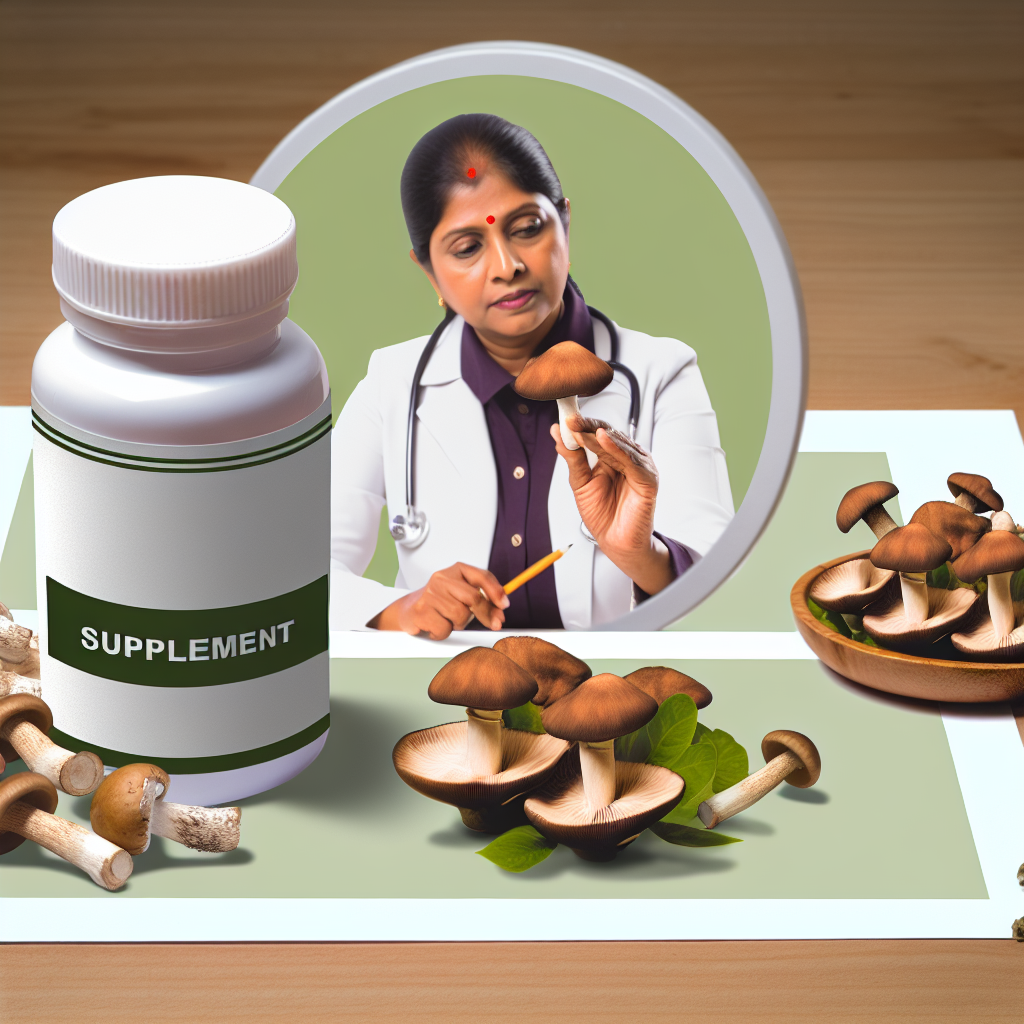Synergistic Effects: Combining Medicinal Mushrooms with Herbs
Introduction
Nature has long been a source of healing, providing an abundance of plants and fungi with profound medicinal properties. Medicinal mushrooms, such as reishi, lion’s mane, and cordyceps, have garnered significant attention for their benefits in immune support, cognitive function, and stress relief. Similarly, herbs like ashwagandha, turmeric, and ginseng play a crucial role in traditional medicine systems worldwide.
While these natural remedies are potent on their own, an emerging area of research suggests that combining medicinal mushrooms with complementary herbs may amplify their therapeutic effects. This synergy—where the combined effects of two or more substances exceed the sum of their individual effects—could be a game-changer in natural medicine.
This concept is not new. Traditional Chinese Medicine (TCM) and Ayurveda have long emphasized the power of blending mushrooms and herbs for enhanced healing effects. Modern science is now catching up, uncovering the mechanisms behind these synergistic interactions.
The benefits of pairing mushrooms with herbs stem from their complementary bioactive compounds. Medicinal mushrooms contain beta-glucans, triterpenes, and polysaccharides that support immune function, reduce inflammation, and improve neurological health. Meanwhile, many medicinal herbs contain adaptogens, alkaloids, and flavonoids that enhance stress resilience, increase antioxidant activity, and regulate hormone levels. When used together, these compounds may work in harmony to provide amplified health benefits.
This article explores the science behind these synergistic relationships, providing insight into how medicinal mushrooms and herbs can be strategically combined for maximum efficacy. We will also examine the latest research supporting these combinations so that consumers can make informed choices about natural healing solutions.
Scientific Research on Mushroom and Herb Combinations
Scientific interest in the synergy between medicinal mushrooms and herbs has grown, leading to various studies exploring their combined effects. Below are some key findings from professional and medical research that support the benefits of these natural pairings:
Reishi and Ashwagandha: A Powerful Duo for Stress Reduction
Reishi mushroom (Ganoderma lucidum), known as the “mushroom of immortality,” is widely used for stress reduction and immune support. Ashwagandha (Withania somnifera), an adaptogenic herb in Ayurvedic medicine, is famous for its ability to combat stress and enhance overall vitality.
– A 2020 study published in BMC Complementary Medicine and Therapies found that reishi mushroom extract helped regulate cortisol levels and improve sleep quality in stressed individuals ([source](https://bmccomplementmedtherapies.biomedcentral.com/articles/10.1186/s12906-020-03058-6)).
– Another study, published in the Journal of Ethnopharmacology, confirmed that ashwagandha supplementation significantly reduced stress, anxiety, and cortisol levels ([source](https://www.sciencedirect.com/science/article/abs/pii/S0378874121005761)).
The combination of reishi and ashwagandha may work synergistically by enhancing the ability to manage stress, improve relaxation, and regulate bodily responses to hormonal imbalances.
Lion’s Mane and Ginkgo Biloba: Boosting Brain Function and Memory
Lion’s mane (Hericium erinaceus) is a well-known neuroprotective fungus that stimulates nerve growth factor (NGF) production, essential for cognitive function and neural repair. Ginkgo biloba, a traditional herb used for centuries, enhances blood circulation to the brain and has been linked to improved memory and cognitive clarity.
– A 2019 study in Frontiers in Aging Neuroscience found that lion’s mane extract significantly improved cognitive function in people with mild cognitive impairment ([source](https://www.frontiersin.org/articles/10.3389/fnagi.2019.00013/full)).
– A study in Psychopharmacology reported that Ginkgo biloba extract improved cognitive performance and reduced symptoms of dementia ([source](https://link.springer.com/article/10.1007/s00213-017-4691-8)).
Together, these two natural substances may enhance memory retention, delay cognitive decline, and provide neuroprotective advantages for individuals looking to support long-term brain health.
Cordyceps and Turmeric: A Potent Anti-Inflammatory Alliance
Cordyceps (Cordyceps militaris) is widely revered for its energizing and anti-inflammatory properties, particularly in traditional Chinese medicine. Turmeric (Curcuma longa) contains curcumin, a powerful anti-inflammatory compound with significant health benefits.
– A study published in Oxidative Medicine and Cellular Longevity in 2021 found that cordyceps supplementation reduced oxidative stress and inflammation in healthy individuals ([source](https://www.hindawi.com/journals/omcl/2021/6621978/)).
– Research on curcumin, published in Critical Reviews in Food Science and Nutrition, highlighted its role in reducing systemic inflammation, supporting joint health, and preventing chronic diseases ([source](https://www.tandfonline.com/doi/full/10.1080/10408398.2020.1803208)).
By combining cordyceps with turmeric, individuals may experience enhanced anti-inflammatory effects, making this pair especially beneficial for athletes, individuals with joint pain, or those with inflammatory-related conditions.
Conclusion: Unlocking the Healing Potential of Natural Synergies
The combination of medicinal mushrooms and herbs presents an exciting frontier in natural medicine. Research continues to unveil the amplified benefits of these pairings, showcasing their potential for stress relief, cognitive enhancement, immune support, and inflammation reduction. As modern research aligns with ancient healing practices, individuals seeking holistic wellness can harness these synergies to optimize their health naturally.
When selecting and using these powerful natural remedies, consider high-quality sources, proper dosages, and professional guidance to ensure safety and effectiveness. With the right combinations, nature’s gifts can work in harmony to foster vitality, resilience, and lasting health benefits.
Concise Summary:
Combining medicinal mushrooms like reishi, lion’s mane, and cordyceps with complementary herbs like ashwagandha, ginkgo biloba, and turmeric can provide amplified health benefits through synergistic effects. Research shows these natural pairings can enhance stress reduction, cognitive function, immune support, and anti-inflammatory properties. By harnessing the power of these natural synergies, individuals can optimize their overall well-being using holistic solutions.

Dominic E. is a passionate filmmaker navigating the exciting intersection of art and science. By day, he delves into the complexities of the human body as a full-time medical writer, meticulously translating intricate medical concepts into accessible and engaging narratives. By night, he explores the boundless realm of cinematic storytelling, crafting narratives that evoke emotion and challenge perspectives. Film Student and Full-time Medical Writer for ContentVendor.com




